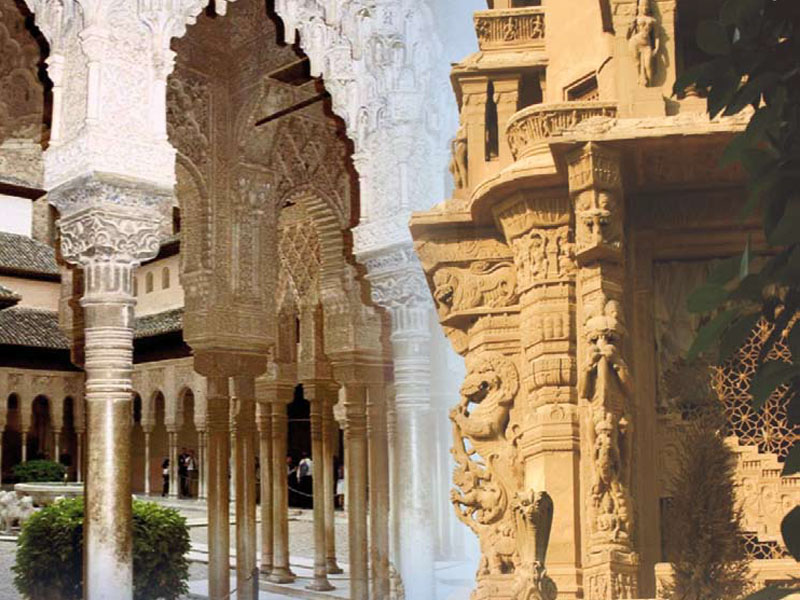Civilizations Dialogue: environment and values
Issue 5

Mohamed Radwani - MOROCCO
The researcher questions the dialogue between civilizations and cultures about transformations and deficiency in the world, such as the apparent paradox between computational and technological revolution, shortening spaces, overcoming borders, and unifying the world in one market, on the one hand, and the evolving of the racial and ethnic identities, return of religious and cultural local and regional identities, and its increasing effect on the international community, on the other hand. At the same time, the world recognizes many ethnic and religious conflicts after September 11th, 2001, the increasing of hate and intolerance, and rising of the mutual fear between western and Islamic civilizations. The researcher mentions the deficiency on moral and international culture levels, which feed conflicts between civilizations, like the presence of negative prejudges because of the media and symbolic conflicts. The image of a Muslim in western countries is connected to ignorance, despotism, violence, terrorism, irrationalism, and instinct tendencies. On the opposite, the image of western countries in the conscious of an Arab and Muslim is atheism, Godlessness, immorality, colonialism, and aggression. In addition to the exaggeration in the illusion of heroism and fame, the propagation of the philosophy of sanctification of catastrophe, the increasing of virtual markets of extremist ideas through the internet that guides to terrorist activities, encouraging conflicts, which gives rise to the spreading of a culture that gives halo to terrorist, racist, and hatred deeds towards the other. The researcher mentions the requirement for a dialogue between civilizations and cultures emphasizing that the dialogue triggers the relation between ego and the other, and it depends on the international and local context, and that dialogue between civilizations is affected by the economy, politics, culture and religion, and it is shaped by speeches and explicit initiatives, but is also supported by practice. We assume in the dialogue that the methodology of the strong and the weak are equal. The researcher delimits the requirement for the dialogue between civilizations and cultures in the following conditions:
1- Recognizing the other
2- Belief that truth is relative
3- Equality between parts of the dialogue
4- Rational understanding of the international reality







































































